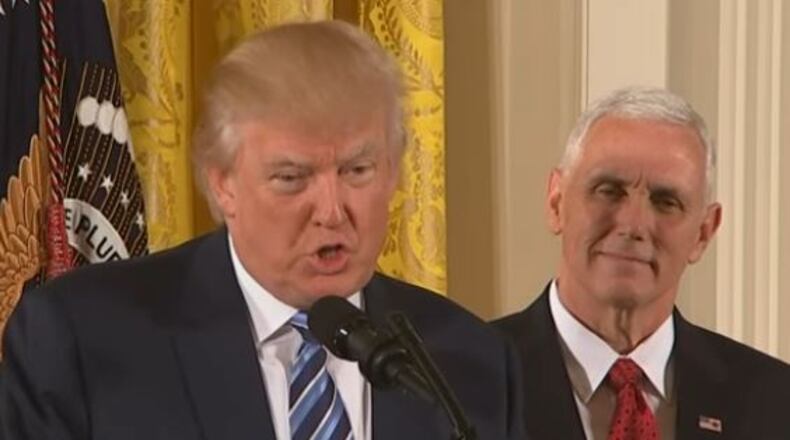"What President Trump is doing is he wants to get rid of that Obamacare penalty," Conway said, "because that is something that is really strangling a lot of Americans, to have to pay a penalty for not buying government run health care."
The President's first major executive order, signed Friday evening on his first day in office, offers a veritable cornucopia of unanswered questions on how the feds might use broad regulatory powers to change the way the Obama health law is administered.
One prime example - the individual mandate.
"Trump's ACA executive order doesn't change individual mandate by itself, but if it signals future administrative action to undo mandate," said Loren Adler, a health care specialist at the Brookings Institute.
The administrative action does not have to come from the Department of Health and Human Services - it could also come from the Internal Revenue Service, which collects the tax penalty for not buying health insurance.
If you go back in recent years, you can find examples where the IRS used its administrative power to exempt some Americans from the penalty associated with the mandate to buy health insurance.
There were exemptions like this one from July of 2013:
And there were much more controversial moves, like in 2014, when the employer mandate was delayed by the Obama Administration.
One important point here though is - Republicans have long charged that such moves to delay the individual and employer mandate penalties were not legitimate actions by President Obama - and the GOP even filed a lawsuit against them, arguing Mr. Obama had overstepped his legal authority.
But, they would seem to be going down the same road to use such powers to tinker with the law in an administrative fashion - now that President Trump is in office.
(The case is titled, United States House of Representatives v. Burwell, if you want to read up on it.)
So, while we have this executive order from President Trump on how to re-mold the Obama health law, we don't have that much in the way of specifics for where things might go.
Stay tuned. A lot can happen on the health law, and it doesn't have to go through the Congress - just like in the Obama Administration.
About the Author

